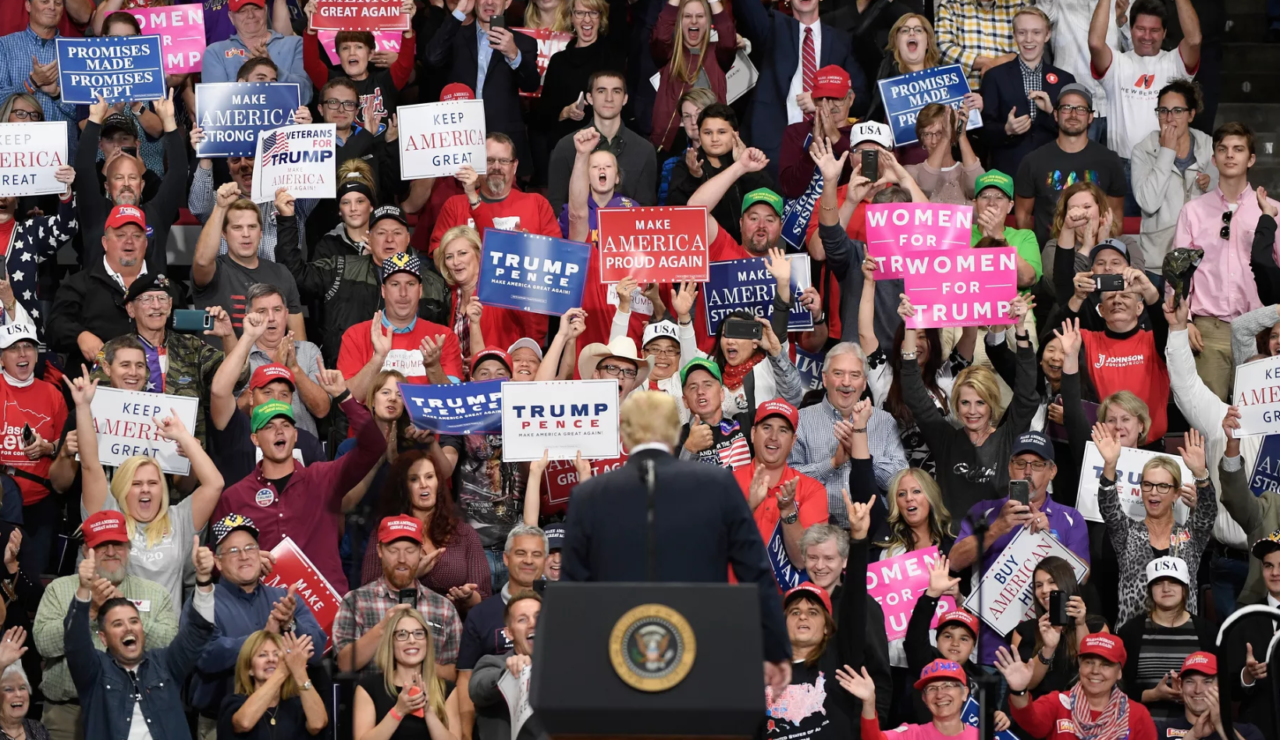You are a mystery to me.
I watch you standing there with wide-eyed, breathless adoration, and I simply can’t fathom how you ended up there in that spot, what it is you’re feeling in that moment, how this has become a voice you feel affinity with.
Why are you here?
I’d never stand behind someone who makes fun of stutterers.
I’d never stand behind someone who uses a person’s physical appearance as a slur.
I’d never stand behind someone who speaks about women as though they are things.
I’d never stand behind someone who mocks people with disabilities.
I’d never stand behind someone who exploits racial and ethnic stereotypes.
I’d never choose such a person as a friend, let alone choose them to make decisions regarding hundreds of millions of people or to represent me in the world or to shape the place my children call home—and the reason has nothing at all to do with politics.
It’s a human decency thing.
I’d never do these things, because as a Christian I was raised to treat people with a dignity that I was taught they deserve as solely unique human beings fearfully and wonderfully made in the image of a God who is love.
I was raised to believe that I was fortunate to be born where I was born and with the advantages I have and surrounded by the love I was surrounded by and inside the healthy body I inhabited; and that I should remember that many people were not—and that this makes life more difficult for them.
I was raised to look for the uncomfortable people on the periphery and to welcome them in: to make them feel seen and heard, to reduce the loneliness they experience, to help them feel less isolated than they usually do.
I was taught to defend bullied people, to befriend the vulnerable, and to extend kindness in a way that makes someone else’s load lighter—because life is heavy and it’s difficult on its best day.
I was taught that compassion is the better path (or in plain language, not to be a jerk).
What were you taught that was different than that?
I also grew up knowing that you can’t believe one thing while saying another; that your actions ultimately declare what you value despite what you claim to value with words; that if your personal faith is never tangibly embodied in your daily life—it is simply a showy, dressed up corpse.
As an adult, I’ve interpreted this to mean that your politics reveal who you are: that you vote for people you agree with, who reflect your heart, who share your values, who speak for you—people who in some significant way embody you.
What is it about him that you feel a kindred spirit with when you hear him speak?
Our politics aren’t some detached entities that exist separated from our moral convictions and our personal values—they are direct extensions of them. We choose human beings to represent us in the world, who do and say what we would do and say if we had the power and position they have.
I really wonder why you’ve chosen this man to speak for you.
I wonder what about the slurs and the taunts and the nicknames and the expletives and the viciousness feels congruent with the way you see the world.
I wonder what vicarious impulse you express through him when he provokes people he has power over, especially when they are at their most vulnerable.
I wonder how the continual stream of vengeful attacks on already marginalized communities gives voice to something you harbor in the deepest recesses of your heart.
I wonder why this hatred is something you feel solidarity with.
You tell me you’re not a mean-spirited person, that you don’t harbor enmity in your heart, that you have no desire to see people hurt, and I want to believe you—but this alliance is a disconnect.
For some reason, you stand proudly behind cruelty.
You cheer it on when it generates pain for people.
You laugh when it makes jokes at the expense of others’ misery.
You amen its ever-lowering bottom.
You applaud when it strains wildly to outdo itself in falsehoods.
What does it say about your understanding of Jesus?
What does it echo about the way you see people?
What does it say about the fear that you fight every day to push back?
What does it reveal about your value of those who don’t look or speak or love or believe the way you do?
Try as I might, I simply can’t understand it from where I’m standing.
Tell me why you stand behind cruelty.




